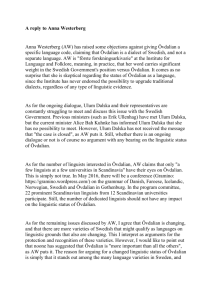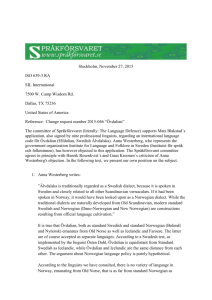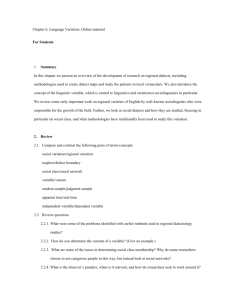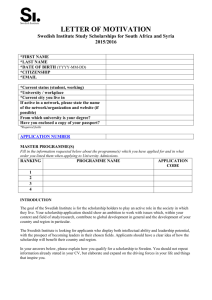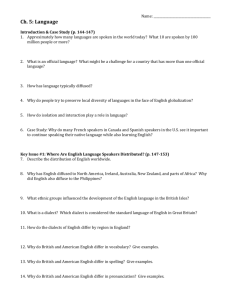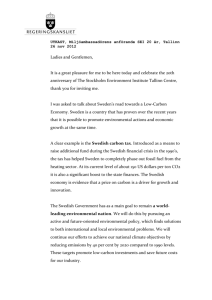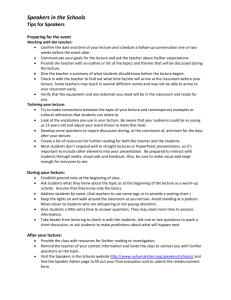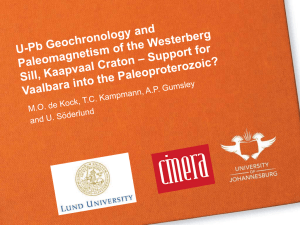Dear Sir/Madam, This is a response to Anne Westerberg, who on
advertisement
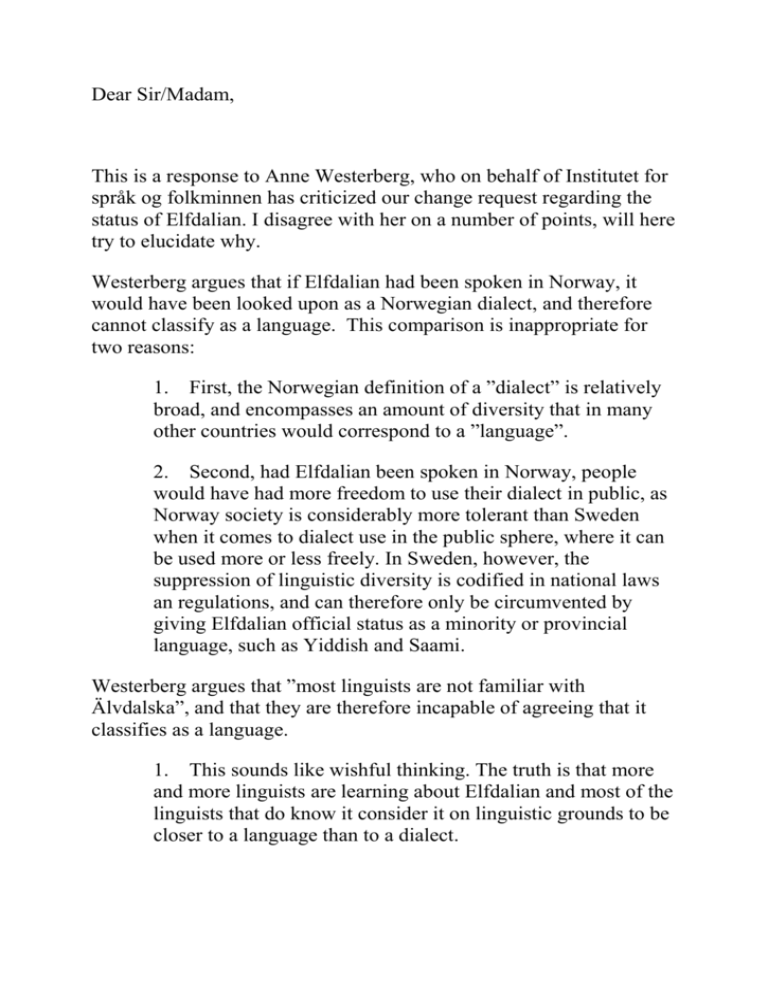
Dear Sir/Madam, This is a response to Anne Westerberg, who on behalf of Institutet for språk og folkminnen has criticized our change request regarding the status of Elfdalian. I disagree with her on a number of points, will here try to elucidate why. Westerberg argues that if Elfdalian had been spoken in Norway, it would have been looked upon as a Norwegian dialect, and therefore cannot classify as a language. This comparison is inappropriate for two reasons: 1. First, the Norwegian definition of a ”dialect” is relatively broad, and encompasses an amount of diversity that in many other countries would correspond to a ”language”. 2. Second, had Elfdalian been spoken in Norway, people would have had more freedom to use their dialect in public, as Norway society is considerably more tolerant than Sweden when it comes to dialect use in the public sphere, where it can be used more or less freely. In Sweden, however, the suppression of linguistic diversity is codified in national laws an regulations, and can therefore only be circumvented by giving Elfdalian official status as a minority or provincial language, such as Yiddish and Saami. Westerberg argues that ”most linguists are not familiar with Älvdalska”, and that they are therefore incapable of agreeing that it classifies as a language. 1. This sounds like wishful thinking. The truth is that more and more linguists are learning about Elfdalian and most of the linguists that do know it consider it on linguistic grounds to be closer to a language than to a dialect. She further argues that ”many of the most characteristic features of the latter are receding or absent today, especially in young and middleaged speakers”. 1. The disintegration of classical Elfdalian is a fact, but it is merely a consequence of it having been denied language status and a corresponding role in education and public life. It is, in other words, a negative effect of an old-fashioned and nationalistic language policy actively reinforced by the Swedish state. To use the negative effects of this policy as a reason to maintain it, is both illogical and perverse. Westerberg then states that ”the supporters of this application choose to disregard the fact that there are still many traditional Swedish dialects that are very different from standard Swedish and therefore regarded as separate languages by their speakers”. 1. This is a non-argument. The fact that there may be other languages varieties in Sweden that also could classify as separate languages is irrelevant to the question whether Älvdalska should be a separate language or not. If Westerberg feels that other Swedish dialects, too, should receive language status, she should simply apply for such status in this forum. 2. To my knowledge, no comprehensive studies are available on language self-categorizaton in Sweden. Westerberg does not herself refer to any publications, at any rate, so her statements must unfortunately remain unverifiable at this point. There are, however, tangible socio-linguistic indications that speakers of Elfdalian self-categorize as speakers of a separate language rather than a dialect. Among these are: 1) they founded the largest language society of the country (Ulum Dalska), 2) they took the initiative to create their own alphabet and orthography, and 3) they actively lobbied for and finally realized the introduction of their language in primary school. All these activities demonstrate that speakers of Elfdalian have actively engaged in a struggle for language revival, i.e. the (re)appropriation of socio-linguistic domains now held by Swedish. By juxtaposing their vernacular to the standard language of Sweden, they express their self-categorization as speakers of a language that comparable socio-linguistic level, i.e. a language parallel to, not a dialect under Swedish. Kind regards, G.K.
